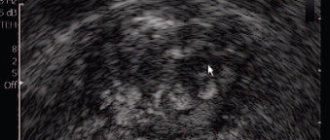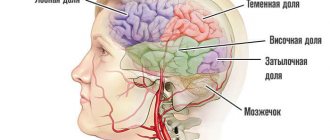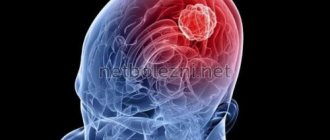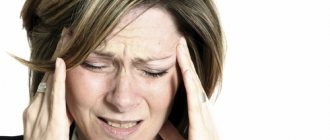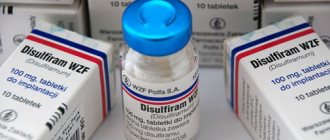MINISTRY OF HEALTH OF THE RUSSIAN FEDERATION
INSTRUCTIONS FOR MEDICAL USE OF THE MEDICINE Bilobil® Bilobil®
Registration number: Trade name: Bilobil® International nonproprietary or generic name: ginkgo biloba leaf extract Dosage form: capsules
Composition 1 capsule contains: Active component: Ginkgo biloba leaf extract (Ginkgo biloba leaf extract dry*) 40.00 mg Excipients: Liquid dextrose [dextrose, oligo- and polysaccharides], lactose monohydrate, corn starch, talc, colloidal silicon dioxide, magnesium stearate Composition of hard gelatin capsule (body and cap): Black iron oxide dye (E172), red iron oxide dye (E172), titanium dioxide (E171), indigo carmine (E132), azorubine dye (E122), gelatin * Ginkgo biloba leaves dry extract from Ginkgo biloba leaves (Ginkgo biloba L., Ginkgoaceae family, folium). The ratio of the amount of medicinal plant material to the amount of the original extract: 35-67:1. Extractant - acetone/water.
Description Hard gelatin capsules No. 4, body and cap violet-brown. The contents of the capsules are light brown to dark brown powder with darker colored particles. Small lumps are allowed. Pharmacotherapeutic group: angioprotective agent of plant origin ATC code: N06DX02
Pharmacological properties Pharmacodynamics The drug Bilobil® is of plant origin. Increases the body's resistance to hypoxia, especially brain tissue. Inhibits the development of traumatic or toxic cerebral edema, improves cerebral and peripheral circulation, and improves the rheological properties of blood. It has a dose-dependent regulatory effect on the vascular wall, dilates small arteries, and increases the tone of the veins. Prevents the formation of free radicals and lipid peroxidation of cell membranes. Normalizes the release, re-uptake and catabolism of neurotransmitters (norepinephrine, dopamine, acetylcholine) and their ability to bind to receptors. Improves metabolism in organs and tissues, promotes the accumulation of macroergs in cells, increases the utilization of oxygen and glucose, and normalizes mediator processes in the central nervous system. Pharmacokinetics Absorption After oral administration, the bioavailability of terpene lactones (ginkgolide A, ginkgolide B and bilobalide) is 80% for ginkgolide A, 88% for ginkgolide B and 79% for bilobalide. Distribution When administered orally, peak plasma concentrations were 16-22 ng/ml for ginkgolide A, 8-10 ng/ml for ginkgolide B and 27-54 ng/ml for bilobalide. Plasma protein binding is 43% for ginkgolide A, 47% for ginkgolide B and 67% for bilobalide. Elimination The half-life is 3.9 hours for ginkgolide A, 4-6 hours for ginkgolide B and 2-3 hours for bilobalide.
Indications for use • Symptomatic treatment of cognitive impairment in adults. • As part of complex therapy for dizziness of vestibular origin as an auxiliary treatment in addition to vestibular rehabilitation. • Symptomatic treatment of tinnitus (ringing or noise in the ears).
Contraindications Hypersensitivity to the components of the drug, decreased blood clotting, erosive gastritis in the acute stage, peptic ulcer of the stomach and duodenum in the acute stage, acute cerebrovascular accidents, acute myocardial infarction, pregnancy, breastfeeding period, children under 18 years of age (efficacy and safety has not been studied), lactose intolerance, lactase deficiency, glucose-galactose malabsorption syndrome (Bilobil® contains lactose).
with caution in patients with epilepsy, arterial hypotension.
Use during pregnancy and breastfeeding The use of Bilobil® is contraindicated during pregnancy and breastfeeding due to the lack of sufficient clinical data.
Directions for use and dosage : Inside. Capsules should be swallowed whole with a small amount of water, regardless of meal time. For the symptomatic treatment of cognitive impairment in adults: 1-2 capsules 3 times a day. For dizziness of vestibular origin and symptomatic treatment of tinnitus: 3 capsules per day, distributed throughout the day. The first signs of improvement usually appear after 1 month. The course of treatment is at least 3 months (especially for elderly patients). A repeat course is possible after consultation with a doctor. If a dose of the drug was missed or an insufficient amount was taken, the subsequent dose should be taken as indicated in these instructions, without any changes.
- Side effects Classification of the frequency of side effects according to the recommendations of the World Health Organization (WHO): very often ≥ 1/10 often from ≥ 1/100 to < 1/10 infrequently from ≥ 1/1000 to < 1/100 rarely from ≥ 1/10000 to <1/1000 very rare from <1/10000, including isolated reports frequency unknown cannot be estimated based on available data. From the digestive system: very rarely: nausea, vomiting, diarrhea. From the nervous system: very rarely: headache, dizziness, insomnia. Allergic reactions: very rarely: hyperemia, swelling, itching. From the hemostasis system: very rarely: decreased blood clotting. There are reports of bleeding occurring during long-term use of Ginkgo biloba preparations in patients who were simultaneously taking anticoagulants. From the senses: frequency unknown: hearing loss. If any adverse events occur, you should stop taking the drug and consult your doctor.
Overdose Currently, no cases of overdose of Bilobil® have been reported. In case of overdose, treatment is symptomatic.
Interaction with other drugs The use of Bilobil® is not recommended for patients constantly taking acetylsalicylic acid, anticoagulants (direct and indirect), as well as thiazide diuretics, tricyclic antidepressants, anticonvulsants, gentamicin. Isolated cases of bleeding are possible in patients simultaneously taking medications that reduce blood clotting; the cause-and-effect relationship of these bleedings with taking Ginkgo biloba preparations has not been confirmed. When used with antihypertensive drugs, the antihypertensive effect may be potentiated. Concomitant use with efavirenz is not recommended, since a decrease in its concentration in the blood plasma is possible due to the induction of the CYP3A4 isoenzyme under the influence of Ginkgo biloba extract. An interaction study with talinolol suggests that Ginkgo biloba extract may inhibit intestinal P-glycoproteins. This may increase the intestinal exposure of P-gp-sensitive drugs such as dabigatran and should be used with caution during concomitant use.
Special instructions Do not exceed the recommended doses of Bilobil®. If a hypersensitivity reaction develops, the use of the drug must be discontinued. Before surgery, you must inform your doctor about the use of Bilobil®. If you experience frequent feelings of dizziness and tinnitus, you should consult a doctor. In case of sudden deterioration or loss of hearing, you should immediately consult a doctor. Patients with bleeding (hemorrhagic diathesis) and patients receiving anticoagulant therapy should consult a doctor before starting therapy with Bilobil®. It is not recommended to use Bilobil® together with ethanol. When using Ginkgo biloba preparations in patients suffering from epilepsy, epileptic seizures may occur. Special information about excipients 1 capsule of Bilobil® contains 98 mg of digestible carbohydrates (glucose, lactose, starch), which corresponds to 0.0082 bread units (XE), the maximum daily dose (6 capsules) corresponds to 0.049 XE. Bilobil® contains the dye azorubine (E122), which can cause allergic reactions.
Effect on the ability to drive vehicles and machinery During the period of taking the drug Bilobil®, caution should be exercised when performing potentially hazardous activities that require increased concentration and speed of psychomotor reactions (including driving vehicles, working with moving mechanisms), and in the event of the development of undesirable reactions, including dizziness, you must refrain from driving.
Release form Capsules, 40 mg. 10 capsules in a blister made of combined PVC/PVDC material and aluminum foil. 2 or 6 blisters along with instructions for use are placed in a cardboard pack.
Storage conditions At a temperature not exceeding 25 ° C, in the original packaging. Keep out of the reach of children.
Shelf life: 3 years. Do not use the drug after the expiration date.
Conditions of release Dispensed without a prescription.
Name of the legal entity in whose name the registration certificate was issued, address JSC "KRKA, d.d., Novo mesto", Šmarješka cesta 6, 8501 Novo mesto, Slovenia
, Šmarješka cesta 6, 8501 Novo mesto, Slovenia
Packer (Primary packaging) JSC "KRKA, d.d., Novo mesto", Šmarješka cesta 6, 8501 Novo mesto, Slovenia
Packer (Secondary (consumer) packaging) JSC "KRKA, d.d., Novo Mesto", Šmarješka cesta 6, 8501 Novo Mesto, Slovenia
Release quality control JSC "Krka d.d., Novo mesto", Šmarješka cesta 6, 8501 Novo mesto, Slovenia
Name and address of the organization receiving consumer complaints LLC KRKA-RUS, 125212, Moscow, Golovinskoe highway, building 5, building 1 Tel., fax
The role of the drug Bilobil in the treatment of patients with vascular diseases of the brain
GRISHINA D.A., KADIKOV A.S., SHAKHPARONOVA N.V.
Morbidity and mortality from cerebrovascular diseases (CVD) in Russia remain among the highest in the world. About 450 thousand strokes are registered annually in Russia, among which strokes of an ischemic nature predominate (80%). During the first month, up to 15-30% of patients who have suffered an ischemic stroke, and up to 40-70% of patients who have suffered a hemorrhagic stroke, die. 80% of stroke survivors are left with some degree of limitation in daily life. These can be not only motor, sensory and speech disorders, but also cognitive impairments of varying degrees of severity. Cognitive impairment (often of a progressive nature) is also observed in the vast majority of patients with chronic vascular diseases of the brain (dyscirculatory encephalopathies).
Patients with mild cognitive impairment may experience:
- moderate decrease in ability to concentrate;
- deterioration of simultaneous perception;
- memory impairment for current events, the names of new acquaintances and geographical names;
- absent-mindedness, frequent searches for forgotten things;
- increased fatigue during mental work;
- decreased mood and anxiety due to awareness of one’s own inferiority.
Moderate cognitive impairment does not lead to loss of ability to work or to a significant reduction in normal household and social activity.
Severe degree of cognitive impairment - dementia is characterized by impairments of memory and intelligence, leading to varying degrees of social maladjustment. According to epidemiological data, 4-6% of patients who have had a stroke subsequently develop dementia within a year.
The most common cause of cognitive impairment, especially in elderly patients, is chronic vascular diseases of the brain (CVCD), better known in our country under the term “dyscirculatory encephalopathy.” Discirculatory encephalopathy is heterogeneous in its etiology. The following main variants of discirculatory encephalopathy are distinguished:
- hypertensive encephalopathy (subcortical arteriosclerotic encephalopathy and hypertensive multi-infarct encephalopathy);
- atherosclerotic encephalopathy;
- chronic vascular vertebrobasilar insufficiency;
- mixed forms.
Cognitive impairment in dyscirculatory encephalopathy progresses gradually or stepwise, reaching the final stage (on average after 10-15 years) to the degree of dementia. Despite the progressive increase in cognitive impairment, periods of stabilization and even improvement are possible. Cognitive disorders in dyscirculatory encephalopathy are associated with predominant damage to the periventricular substance of the frontal lobes, where the so-called cognitive pathways (frontothalamic, frontolimbic) pass. The most common cognitive impairments occur in subcortical arteriosclerotic encephalopathy and hypertensive multi-infarct encephalopathy. In hypertensive multi-infarct encephalopathy, the development of cognitive impairment is associated with the location of the infarction in functionally significant areas of the brain. Most often, cognitive impairment occurs when lacunar infarctions are localized in the anteromedial parts of the thalamus and in the region of the frontothalamic tracts.
In addition to cognitive impairment, patients with CSHM and patients in the recovery and residual post-stroke periods are characterized by emotional-volitional disorders (depression, asthenia, anxiety), headaches and dizziness, gait disturbances (associated in patients who have suffered a stroke, with leg paresis or ataxia; in patients with CSHM - with frontal gait dyspraxia).
Peculiarities of drug therapy for patients with chronic hepatitis B and the consequences of stroke include:
- the need to prescribe, along with etiopathogenetic therapy, a larger number of drugs with syndromological action;
- There is a large percentage of complications and side effects in patients with CSHM that arise during treatment and cause distrust in patients to “chemical” drugs.
To a certain extent, this can be avoided by using herbal preparations prepared on the basis of ginkgo biloba, which have a multimodal effect and practically do not cause complications. These drugs include Bilobil and Bilobil forte, one capsule of which contains 80 mg of ginkgo biloba extract.
The main active ingredients of Bilobil and Bilobil forte are flavonoid glycosides, terpene substances (ginkgolides A, B, C, bilobalide) and proanthocyanidins, which have a positive effect on the processes of free radical oxidation, tissue metabolism and microcirculation. Under experimental conditions, ginkgo biloba has been shown to affect neurotransmitter processes in the central nervous system by enhancing the release of neurotransmitters from presynaptic nerve terminals, inhibiting the reuptake of biogenic amines and increasing the sensitivity of postsynaptic muscarinic receptors to acetylcholine. In our country, the first major study of the effectiveness of Ginkgo biloba was conducted in 1998 by N.N. Yakhno et al. in patients with early forms of chronic disorders of cerebral blood flow. The therapy has been shown to have a positive effect on memory, concentration and attention span, associative processes, and psychomotor functions. The effect of therapy was quite persistent, as evidenced by follow-up observations of some patients (N.N. Yakhno et al., 2005). Later it was found that Bilobil not only improves cerebral circulation and the supply of oxygen and glucose to the brain, but also prevents red blood cell aggregation, inhibits platelet activating factor, stimulates the production of endothelium-dependent relaxing factor, dilates small arteries, increases the tone of veins, thereby regulating blood filling of blood vessels. A large number of studies have been conducted to study the effectiveness of ginkgo biloba preparations in various diseases accompanied by cognitive impairment (V.V. Zakharov, N.N. Yakhno, 2004; J. Birks et al., 2007; JA Mix et al., 2002). The vast majority of these studies found beneficial effects of ginkgo biloba on cognitive function. Considering that dementia progresses over time, stabilization of the condition during the use of ginkgo biloba may indicate its undeniable effectiveness (J. Brandt, 2004). The greatest effect of ginkgo biloba is observed in mild neurological disorders, which indicates the advisability of the earliest use of this drug in dyscirculatory encephalopathy (P. Solomon, 2002). Research conducted by V.A. Parfenov and Yu.A. Starchina (2005), M.M. Equally, A.Yu. Emelin (2006) showed that in patients with BMS, the use of drugs containing ginkgo biloba improves cognitive function, reduces the severity of headaches, dizziness and emotional disorders.
Summarizing the results of many clinical studies, it can be argued that Bilobil has the following effects:
- has a positive effect on metabolic processes in the central nervous system, improving the state of cognitive functions and the emotional-volitional sphere;
- improves cerebral circulation by increasing the elastic properties of the vascular wall;
- reduces the aggregation ability of erythrocytes and platelets, thereby preventing the development and progression of cerebral ischemia;
- improves the condition of the microvasculature.
Bilobil is shown:
- patients who have suffered an ischemic stroke, in order to improve the state of cognitive functions, emotional-volitional sphere, reduce the severity of headaches, dizziness, ataxic syndrome, etc.;
- patients with CSHM with the aim of slowing the progression of the disease, improving cognitive functions and emotional-volitional sphere, improving walking function;
- patients with SHM and concomitant peripheral circulatory disorders (atherosclerotic damage to the vessels of the heart, legs and renal arteries), diabetic angio-retinopathy, etc.
Standardized ginkgo biloba extract preparations are taken 80 mg 2-3 times a day, usually during or after meals, with water. Patients with difficulty falling asleep should not take ginko biloba preparations immediately before bedtime; the evening dose should be no later than 18-19 hours. The course of treatment is from 4 to 12 weeks, in some cases longer treatment is required. It is recommended to conduct 2-3 courses throughout the year. Bilobil is well tolerated, side effects are rare (1-2% of cases) and are usually represented by harmless dyspeptic symptoms, headache, nervousness, sleep disturbances, and skin allergic reactions.
Literature 1. Zakharov V.V., Yakhno N.N. Syndrome of moderate cognitive impairment in old and senile age // RMJ. - 2004. - No. 10. - P. 573-576. 2. Odinak M.M., Emelin A.Yu. Experience of using Tanakan in the treatment of moderate cognitive disorders // RMJ. - 2006. - T. 14, No. 23. - P. 1681-1686. 3. Parfenov V.A., Starchina Yu.A. Treatment by Tanakan of neurological disorders in patients with arterial hypertension // Breast Cancer. - 2005. - T. 13, No. 22. - P. 1462-1465. 4. Preobrazhenskaya I.S., Yakhno N.N. Vascular cognitive disorders - clinical manifestations, diagnosis, treatment // Neurological Journal. - 2007. - T. 12. - P. 45-51. 5. Yakhno N.N., Zakharov V.V., Lokshina A.B. Syndrome of mild cognitive impairment in dyscirculatory encephalopathy // Journal of Neurology and Psychiatry. - 2005. - No. 2. - P. 13-17. 6. Yakhno N.N., Damulin I.V., Zakharov V.V., Elkin M.N., Erokhina L.G., Stakhovskaya L.V., Chekneva N.S., Suslina Z.A., Timerbaeva S.L., Fedin P.A., Bodareva E.A., Skoromets A.A., Sorokoumov V.A., Ivashkin V.T., Gigorev Yu.V., Pervozvansky B.E. The use of Tanakan in the initial stages of cerebrovascular insufficiency: results of an open multicenter study // Neurological Journal. - 1998. - T. 3. - P. 18-22. 7. Birks J., Grimley Evans J. Ginkgo biloba for cognitive impairment and dementia. Review // Cochrane Database Syst. Rev. - 2007. - Vol. 18, No. 2. - P. 124-132. 8. Bowler JV Vascular cognitive impairment // Stroke. - 2004. - Vol. 35, No. 2. - P. 386-388. 9. Brandt J. Mild cognitive impairment in the elderly. Review // Am. Fam. Physician. - 2001. - Vol. 63, No. 4. - P. 620-626. 10. Christen Y. Ginkgo biloba and neurodegenerative disorders. Review // Front. Biosci. - 2004. - Vol. 1, No. 9. - P. 3091-3104. 11. Mix JA, Crews WD A double-blind, placebo-controlled, randomized trial of Ginkgo biloba extract EGb 761 in a sample of cognitively intact older adults: neuropsychological fmdings // Hum. Psychopharmacol. - 2002. - Vol. 17, No. 6. - P. 267-277. 12. Solomon P., Adams F., Silver A. et al. Ginkgo for Me-mory Enhancement. A randomized controlled trial // JAMA. - 2002. - No. 288. - P. 835-840.
